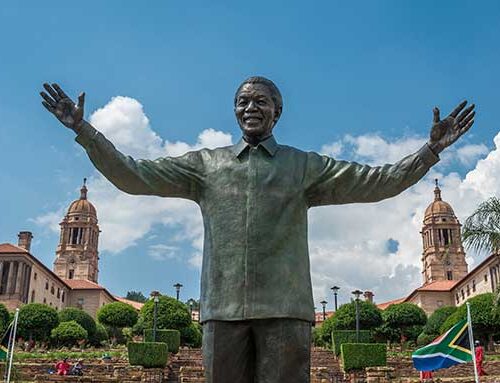Thoughts on Leadership
By Joan S. Peck, Las Vegas, Nevada, USA

My first memory of leadership is when my older brother of nearly 5 was the leader marching around the house trailing Cheerios along his path, with my twin sister and me following behind shrieking and laughing while stepping on and crushing as many of those little circles as we could!
Is everyone who has willing followers really a leader? Does simply having followers make for an effective leader? I daresay that my mother probably thought my brother had long-term effectiveness when our actions caused her to continue to find Cheerios in the depths of the couch for months afterward. But, what is true leadership about?
No one really does anything all on his own, and we know that there is strength in numbers, so the assumption would be that “no man stands alone.” Yet, there has to be something within leaders that urges them to express themselves by speech, written words, pictorial vision, stance or action that demands a reaction from others. And, they have to do it without the fear of consequences. By doing so, that confidence of their beliefs is often the attraction that draws others to them. Sometimes that comradery is short-termed, particularly if a problem or situation has been solved, while other times it seems to go on forever, like the conflicts in the Middle East, perhaps with different aspects changing over time.
Most leaders develop a real sense of power that can be positive if used to the benefit of others; or their power can lead to negative behaviors such as when it affords them financial gain at the expense of others or their power creates a blindness to morality or a code of ethics thereby expressing a sense of entitlement which has no bounds. We see this often when those engaged in politics and in sports cross those lines. As a whole, we as a society equate leadership with power conveyed as money power. This limits us to view leadership as less than a particularly good thing.
I realize that leadership is a very personal concept, and those of us who consider someone else a true leader usually can relate and agree to the leader’s philosophy in some way. For me, the true leaders of our world are those who recognize that we are all one – each the other – and don’t necessarily need to rant and rave about their beliefs but rather go about their business in a less showy manner. For example, Mother Theresa.
Yet, I am also very aware that as a society, often it is the “squeaky wheel that gets oil.” The greatest concern of mine about this is that we are immersed via the media in seeing our supposed leaders who have an agenda and contrasting ideas being accusatory, unkind, and disingenuous toward others who don’t agree. There is a greater sense that you have to fight for your ideas and being uncivil about opposing ideas is okay, which is anything but how a true leader behaves.
If you look back in history to your favorite leader or even at today’s leaders, they seem to have similar qualities which have carried them to success. See if you agree.
- Honesty
- Ability to delegate
- Excellent communication skills
- A sense of humor
- Confidence
- A sense of commitment
- Positive attitude
- Creativity
- Intuition
- Ability to inspire others
The common traits of a courageous and effective leader, according to Susan Tardanico, CEO in Residence at the Center for Creative Leadership, are the following:
- Confront reality head-on
- Seek feedback and listen
- Say what needs to be said
- Encourage push-back
- Take action on performance issues
- Communicate openly and frequently
- Lead change
- Make decisions and move forward
- Give credit to others
- Hold people (and yourself) accountable
All I can say is that I am very impressed when someone can do that – and do it without ego…. or Cheerios.
This article originally appeared in the Summer 2024 issue of CHOICES Magazine






Leave A Comment